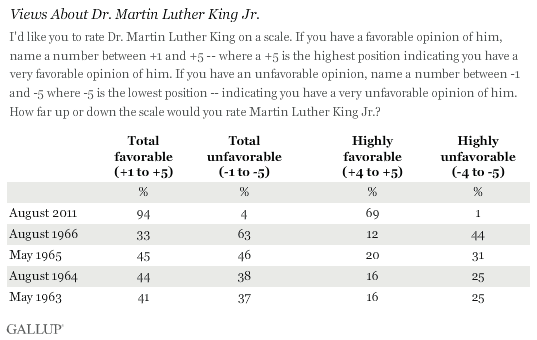“Things didn’t used to be this divided,” they say. “Why does there have to be all this racial tension?” they ask. You know who I’m talking about—those white Facebook friends who write wistfully of a time when things were less divided, a time before these racial tensions appeared out of nowhere, a time before the media covered police brutality on almost a daily basis. Here’s the problem: police brutality existed before it peppered memes in our Facebook feed, and these racial tensions are not new. They’re just newly visible to white Americans. Before these past few years, white Americans could ignore the police state that shapes black Americans’ lives. It was still there. It was just invisible to those who didn’t have to live it.
Profiling black Americans as “thugs” and criminals is not new. Black Americans have been dealing with these problems for decades and longer. Black parents have long had to have “the talk” with their children, teaching their children how to look and act as nonthreatening as possible when encountering police—because they know that simply having black skin will be interpreted as a threat. It’s just that until recently, most white Americans were blissfully unaware of this. Invisible problems are problems we can comfortably ignore unawares, but ignoring problems because we don’t see them doesn’t mean they don’t exist, or will go away.
And then there’s criticism of the methods of the Black Lives Matter movement, often combined with an appeal to Martin Luther King, Jr. So let’s take a moment and turn to Martin Luther King, Jr. What would he have had to say about the Black Lives Matter movement? What would he have said about white Americans who are more concerned about order and the absence of tension than they are about justice? Let’s look at his 1963 Letter from a Birmingham Jail for clues:
I must confess that over the past few years I have been gravely disappointed with the white moderate. I have almost reached the regrettable conclusion that the Negro’s great stumbling block in his stride toward freedom is not the White Citizen’s Counciler or the Ku Klux Klanner, but the white moderate, who is more devoted to “order” than to justice; who prefers a negative peace which is the absence of tension to a positive peace which is the presence of justice; who constantly says: “I agree with you in the goal you seek, but I cannot agree with your methods of direct action” …. Shallow understanding from people of good will is more frustrating than absolute misunderstanding from people of ill will. Lukewarm acceptance is much more bewildering than outright rejection.
I had hoped that the white moderate would understand that law and order exist for the purpose of establishing justice and that when they fail in this purpose they become the dangerously structured dams that block the flow of social progress. I had hoped that the white moderate would understand that the present tension in the South is a necessary phase of the transition from an obnoxious negative peace, in which the Negro passively accepted his unjust plight, to a substantive and positive peace, in which all men will respect the dignity and worth of human personality. Actually, we who engage in nonviolent direct action are not the creators of tension. We merely bring to the surface the hidden tension that is already alive. We bring it out in the open, where it can be seen and dealt with. Like a boil that can never be cured so long as it is covered up but must be opened with all its ugliness to the natural medicines of air and light, injustice must be exposed, with all the tension its exposure creates, to the light of human conscience and the air of national opinion before it can be cured.
In other words, many white Americans today are reacting to the Black Lives Matter movement in much the same way that white Americans of the early 1960s reacted to the Civil Rights movement. Order is more important than justice, and the absence of tension is more important than the presence of justice. King’s response to this sentiment is as real today as it was then—the point of law and order should be to establish justice. If law and order does not establish justice, law and order has become part of the problem. I am confident, based on this and other quotes, that if King were here today, he would be standing alongside the Black Lives Matter protestors.
White Americans of the 1960s weren’t any more comfortable with Martin Luther King, Jr., than white Americans of the 2010s are with the Black Lives Matter movement. In his own time, King was a very controversial figure.

I am certain that Martin Luther King, Jr., would be horrified to see his legacy twisted into a cudgel to be used against those actually carrying it out.
White Americans need to stop complaining about how uncomfortable the increased visibility of racial tension makes us and start listening to our black fellow citizens. It’s easy to think a problem doesn’t exist just because we don’t personally experience it. I spoke with a white friend, recently, who grew up surrounded by other white people, blissfully unaware of problems like racial profiling. As an adult she began making black friends, and was shocked when one of these friends had the police called on him for car theft of his own car. Today, she regularly shares about Black Lives Matter on her Facebook page, because she gets it.
As white Americans, we will not see the racial profiling and police brutality experienced by black Americans unless we are willing to listen to black Americans speak of their experiences. But instead, when black Americans start speaking of their experiences, they are accused of stirring up racial tension and of making our nation more divided. I’ve got news for you—it’s not black Americans who are making things divided. It’s white Americans who refuse to listen or care.















